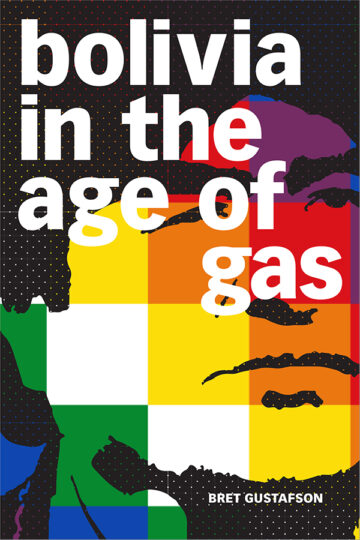Evo Morales, Bolivia’s first Indigenous president, won reelection three times on a leftist platform championing Indigenous rights, anti-imperialism, and Bolivian control over the country’s natural gas reserves. In Bolivia in the Age of Gas, Bret Gustafson explores how the struggle over natural gas has reshaped Bolivia, along with the rise, and ultimate fall, of the country’s first Indigenous-led government. Rethinking current events against the backdrop of a longer history of oil and gas politics and military intervention, Gustafson shows how natural gas wealth brought a measure of economic independence and redistribution, yet also reproduced political and economic relationships that contradicted popular and Indigenous aspirations for radical change. Though grounded in the unique complexities of Bolivia, the volume argues that fossil-fuel political economies worldwide are central to the reproduction of militarism and racial capitalism and suggests that progressive change demands moving beyond fossil-fuel dependence and the social and ecological ills that come with it.
“Bolivia in the Age of Gas is without a doubt the definitive account of the Bolivian petrostate and its subjects. It makes important contributions to anthropology, to Latin American studies, and to the emergent interdisciplinary literature in energy humanities. It is also a true pleasure to read, the rare scholarly page-turner that conveys critical analytical insights in terms and ethnographic moments that will captivate readers of all backgrounds.” — Dominic Boyer, author of Energopolitics: Wind and Power in the Anthropocene
Bret Gustafson is associate professor of sociocultural anthropology at Washington University in St. Louis. He is the author of New Languages of the State: Indigenous Resurgence and the Politics of Knowledge in Bolivia, also published by Duke University Press.
